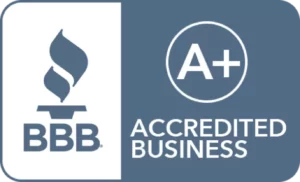Self-Directed IRA Prohibited Transactions
As a retirement investor using the Self-Directed IRA, you must be aware of the prohibited transaction rules before you make an investment. This ensures that you and your retirement plan remain IRS compliant. If you fail to follow the rules, it can lead steep penalties and the disqualification of the retirement account.
The IRC (Internal Revenue Code) does not state what investments you can make, only what investments you cannot make. Under IRC section 4975, the Internal Revenue Code states that the IRA holder cannot purchase life insurance or collectibles (art, stamp, rugs, etc.) with his or her IRA funds.
In general, Self-Directed IRA prohibited transaction rules fall under three categories:
- Direct prohibited transaction
- Self-dealing prohibited transaction
- Conflict-of-interest prohibited transaction
Direct Prohibited Transaction
This transaction involves a disqualified person and his/her retirement account. An example of a direct prohibited transaction is as follows:
Mark uses funds from his Self-Directed IRA to purchase an interest in an entity that his father owns. This transaction is between two disqualified persons (Mark, the IRA holder and his father, a lineal descendant). Furthermore, it personally benefits one of the disqualified persons.
Self-Dealing Prohibited Transaction
A self-dealing prohibited transactions occurs when an individual uses his or her IRA income or assets for personal gains. For example Pam uses her Self-Directed Roth IRA funds to make an investment in a company she controls. Ultimately, this transaction will benefit her personally. The IRS prohibits the use of retirement funds for the benefit of the IRA holder’s personal interests.
Conflict-of-interest Prohibited Transaction
This prohibited transaction occurs when a disqualified person who is also a fiduciary and is involved in a transaction regarding the income or assets of the individual’s IRA. For example, France uses her IRA funds to loan money to company she owns a small interest in. She also manages and controls the daily operations, therefore has a close connection to the investment.
The Prohibited Transaction rules were created to encourage people to save for retirement and increase their retirement funds through tax-free or tax-deferred growth. However, it also prevents individuals from taking advantage of tax benefits for their personal account. Disqualified Persons
Disqualified Persons
Another prohibited transaction is the engagement of IRA funds with a disqualified person. The majority of Self-Directed IRA prohibited transaction rules pertain to transactions with disqualified persons. The reason that transactions with disqualified persons are prohibited is because the IRC views such dealings as suspicious, therefore should not be allowed.
The definition of a disqualified person extends in a variety of scenarios that can be complex. Disqualified persons include the IRA holders and his/her lineal descendants. It also includes entities of which disqualified persons own 50%. IRC Provisions
IRC Provisions
Below are the IRC provisions. Each of these rules fall under different Internal Revenue Code sections.
- Prohibiting IRAs from investing in life insurance contracts.
- Referencing tax on prohibited transactions.
- Defining an IRA’s loss of tax-exempt status upon engaging in a prohibited transaction.
- Describing effect of pledging an IRA or any IRA assets as security for a loan.
- Expressing impermissible investment in collectibles.
- Describing unrelated business taxable income.
- Imposing tax on unrelated business income.
- Describing an unrelated trade or business.
- Individual Retirements Arrangements (IRAs)
- Swanson v. Commissioner (1996)
Did You Know?
Self-Directed IRAs are similar to traditional IRAs – but they provide many more investment opportunities to IRA holders, and include checkbook control potential. A Self-Directed IRA LLC (SDIRA) is a type of individual retirement account that allows retirement investors to use their IRA funds to make alternative asset investments including real estate, tax liens, cryptocurrency, and more.











